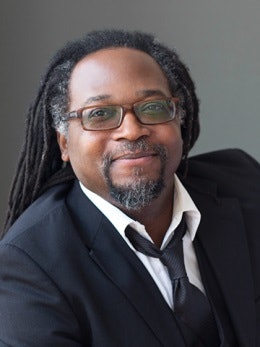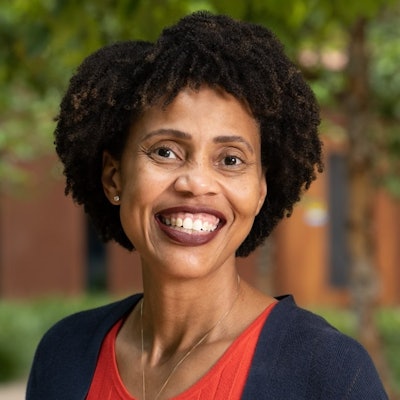In the wave of anti-DEI state legislation that has crested over America this year (29 bills in 17 states), the recently introduced Ohio Higher Education Enhancement Act (SB 83) is uniquely comprehensive.
“What a Frankenstein’s monster of a bill,” said Jeremy C. Young, senior manager of free expression and education at PEN America, a free speech organization. “This is the longest and most complex educational gag order I’ve ever seen; it is also one of the two or three most censorious.”
SB 83 would ban DEI training and programming for staff and students, as well as diversity statements in hiring and promotion. It restricts what can be taught in the classroom and changes how professors would be evaluated, even after tenure. And it forbids schools from having relationships with Chinese universities and faculty from striking, among other provisions that would re-shape higher ed in the state.
SB 83 is unique among this year’s anti-DEI bills, in that it would also regulate private institutions, preventing them from requiring diversity training or diversity statements, and forcing them to post all their course syllabi online in order to receive state funding.
Faculty and administrators at both public and private institutions throughout Ohio have expressed strong opposition to the proposed legislation.
 Dr. Charles Peterson, chair of the Africana studies department at Oberlin University
Dr. Charles Peterson, chair of the Africana studies department at Oberlin University
“It’s clearly in response to the dramatically changing demographic, social, and cultural world of the state and the nation,” he said.
Dr. Oneya Fennell Okuwobi, an assistant professor of sociology at the University of Cincinnati, described herself as “disappointed,” both personally and as a scholar of race. One of her main concerns was the DEI restrictions.
“The idea that we cannot mandate things like diversity training or diversity statements basically means that we don’t know if our colleagues are qualified,” she said. “We have students of all backgrounds here, and we need to be able to serve them, for them to feel comfortable in the classrooms, for them to have everything that they need to succeed.”
Okuwobi also criticized the bill’s limitations on spending for DEI-related spaces and programming.
“Here at the University of Cincinnati, [we have] the African American Resource Center. If you go by there any afternoon, you will find students who are gathering with each other, having a place of belonging in a predominantly white institution,” she said. “Giving them that space of refuge allows them to be more successful. To say that you can’t do [that] and yet [are] providing an equality of opportunity, that’s just incoherent.”
SB 83 would evaluate professors, non-tenured and tenured alike, on whether they provide a learning environment free of “political, racial, gender, and religious bias.” There would be a disciplinary process for professors who interfere with “intellectual diversity rights.”
“It’s intended to be misused,” said Peterson. “It is meant to have a chilling effect—to scare people away from conversations [about] ideas that bring into question the dominance of white, heterosexual, Christian populations. It’s very McCarthy-ite.”
 Dr. Oneya Fennell Okuwobi, an assistant professor of sociology at the University of Cincinnati
Dr. Oneya Fennell Okuwobi, an assistant professor of sociology at the University of Cincinnati
“This bill feels like a thinly veiled attempt to stifle intellectual freedom and the exchange of ideas, hypocritically using the ideal of intellectual freedom,” she said. “The language in this bill is so overly broad that huge swathes of entire disciplines would be called into question as to whether or not they could be taught at colleges and universities in Ohio.”
According to Young, entire subjects could become off-limits. The bill features language banning state institutions from hiring anyone to “provide instruction on” a series of “divisive concepts,” including that “an individual should be discriminated against or receive adverse treatment solely or partly because of the individual’s race.” Young believes that that could prevent professors from teaching about ideas like affirmative action or reparations at all, regardless of how balanced their treatment of the issue was.
Dr. RJ Boutelle, an assistant professor of Africana studies at the University of Cincinnati, pointed out it would be hard to teach about a text that the bill requires students to read, like Dr. Martin Luther King Jr’s Letter from Birmingham Jail, without stepping into forbidden territory. SB 83 bans the idea that “an individual should feel discomfort, guilt, anguish, or any other form of psychological distress on account of his or her race or sex.”
“If I ask white students to sit with [the Letter] and to reflect on their own, perhaps, complicity in systemic or structural racism, as Dr. King is asking them to do, I could potentially be teaching divisive concepts, even though I’m really just teaching the text,” said Boutelle.
Boutelle, Okuwobi, and Peterson all agreed that the bill would ultimately be counter-productive for the state of Ohio.
“It strikes me as ultimately self-defeating,” said Peterson. “You’re not going to get great students, you’re not going to get great educators, you’re not going to get great administrators to want to commit their energy to improving the lives of Ohio students.”
Young believes that SB 83 has a low chance of passing, noting that two bills about divisive concepts that were less restrictive were introduced last year in the Ohio legislature and didn’t advance. But he argued that there’s still reason for concern.
“It has innovated so many new restrictions on higher education that any number of these provisions could be picked up in any number of states where they could face easier prospects,” he said. “That’s what’s so terrifying about it.”
Jon Edelman can be reached at [email protected]















